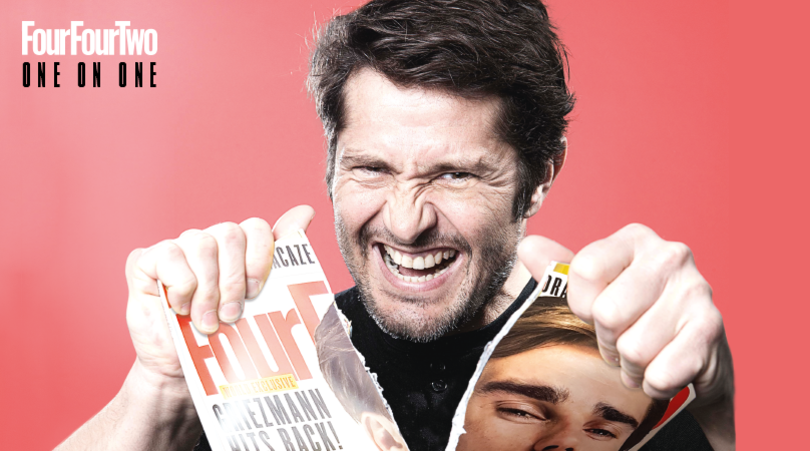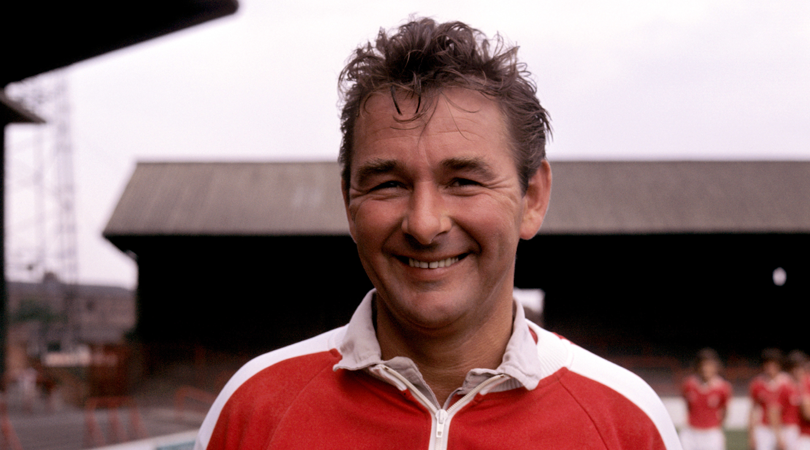Ronaldinho: "I was 48 hours from joining Man United... and then Sandro Rosell called"
Who was the best player he ever came up against? How tough a decision was it to leave Barcelona? And why didn't he join United before that? YOUR questions answered...
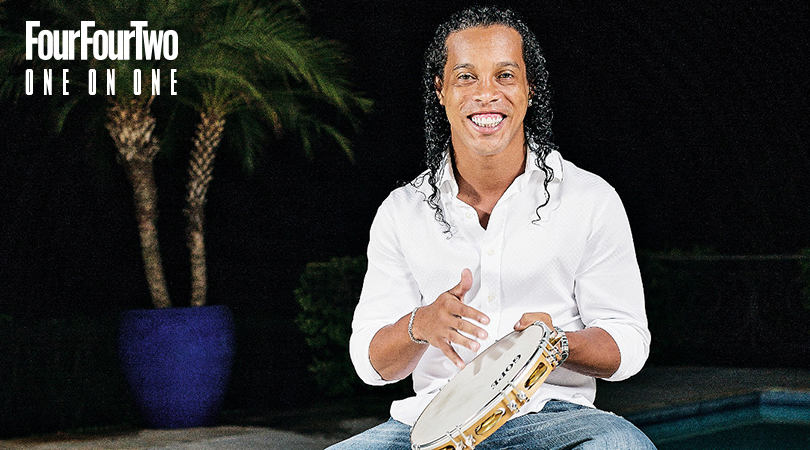
This wide-ranging career reflective was published in 2014, since when 'Dinho has left Atletico Mineiro, spent a season with Mexico's Queretaro and an unhappy two-and-a-half months with Fluminense. FourFourTwo has interviewed him again since.
In January 2018 he finally announced his retirement from football, drawing the curtain on a glorious career in which he wowed one and all with his fun-loving, unique style of football. So what's next? Well, music – as the man himself told FFT. "I want to study, to learn sound engineering and producing," he said. "I’m very curious about it. I want to have a studio built at my home. A lot of musicians come to my house to perform because they know how much I love what they do."
Here's what he made of his own career...
Having a football legend as guest editor comes with many perks. One of them is access to his little black book of superstar contacts. This is how we managed to secure face time with Ronaldinho at short notice, when he was “extremely busy” in the run-up to the World Cup.
“Ronaldo always invites me to the parties he organises. I couldn’t miss the one he's throwing as FourFourTwo’s editor,” grins Ronaldinho as FFT greets him at his home in Belo Horizonte.
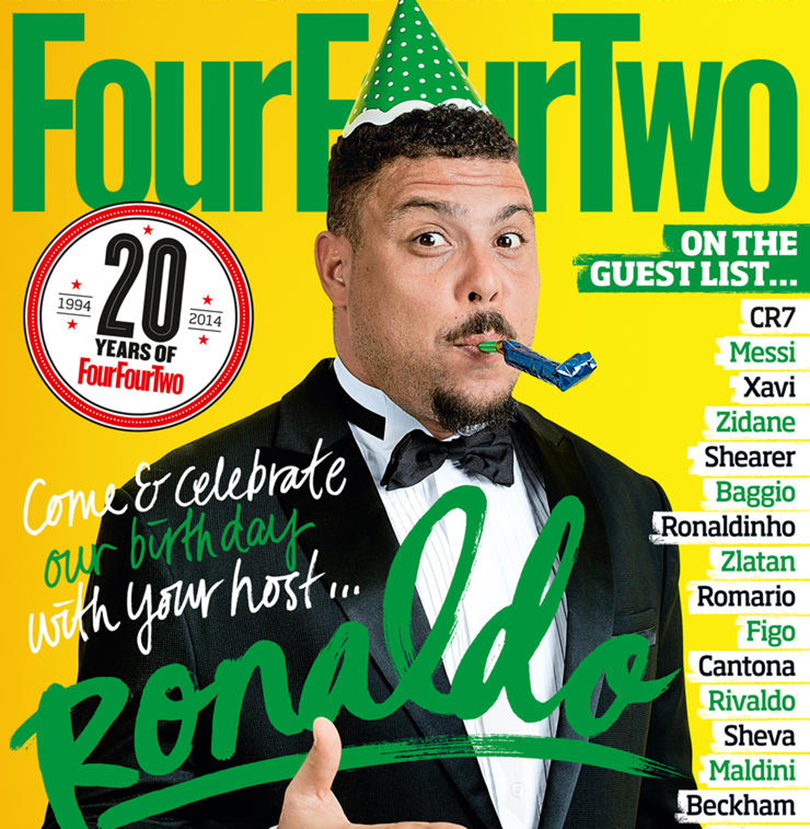
The last time we spoke to the former Paris Saint-Germain and Barcelona forward, it took months of back and forth between him and his brother Assis (also his agent) before we could settle on a date. Even then there were last-minute cancellations, requiring a renegotiation of the date, time and venue. This time, a single phone call and a couple of days later, we’re sitting alongside the two-time World Player of the Year, taking in the night air on his poolside patio.
At the age of 34, Ronaldinho – the name originally given to Ronaldo before this man turned up – still looks fit enough to play; a muscular version of the snake-hipped twenty-something who terrorised Spanish defenders between 2003 and 2008.
The best features, fun and footballing quizzes, straight to your inbox every week.
“Ronaldo was so good to me in the Seleção; I ran twice as much because he was in the team,” he says. “That’s how I found time to do this. It feels great to run for our No.9 again – or should I say the editor? Let’s start…”
1998-2001 Gremio 52 games (21 goals); 2001-03 PSG 86 (25); 2003-08 Barcelona 207 (94); 2008-10 Milan 95 (26); 2010-12 Flamengo 71 (28); 2012-14 Atletico Mineiro 85 (27); 2014-15 QuerEtaro 29 (8); 2015 Fluminense 9 (0)
Did you really score 23 goals in a game when you were a teenager? How bad
were the opposition?!
Aled White, via email
I did, but those kids were terrible! They only played in physical education class, for fun. But I was already in a youth team, which explains a lot. It was in fifth grade and it was never that easy again. I should say that this was earlier than when you see me in those ads as a kid playing futsal. That came later. Against proper opposition.
Which footballers did you love to watch when you were
growing up? Were there any you imagined being when you played?
Bea Smith, Edinburgh
Oh, many of them. My brother Assis, Rivelino, Romario, Ronaldo, Rivaldo. Diego Maradona was special, too. I always enjoyed watching him, including everything he did even before the matches. He was the most playful; the one I liked the most in that sense of playing with the ball. Maradona could dribble at speed towards the goal. He had such a different technique from everyone else. I couldn’t do keepy-uppies with oranges like he did, though – my mother didn’t want me to waste food!
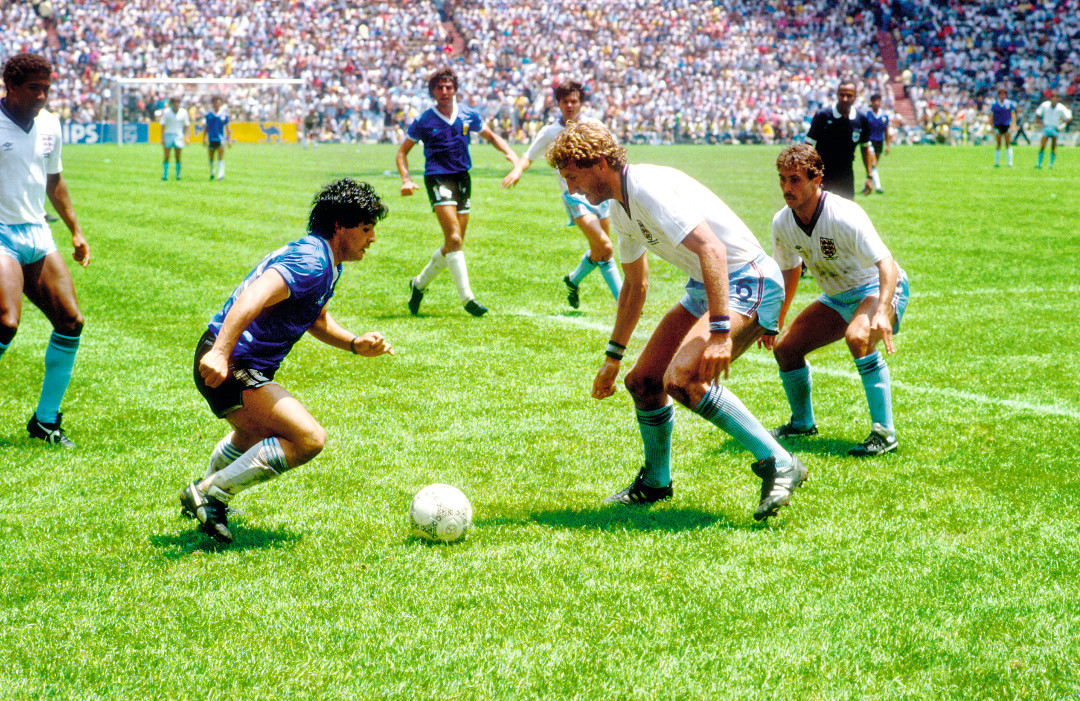
What are your memories of the 1994 and 1998 World Cups, watching as a teenager? How much of an impact did they have on you as a young footballer?
Alex Metcalfe, via Facebook
The 1994 World Cup victory was essential for me to decide to be a footballer. When I saw that, it was clear that was what I wanted to do, and not stick to indoor football. I loved futsal and it was difficult for me to give it up. In 1994, it was great to see one player do so much for the team. If all the teams had one player like Romario, it would have been much tougher for Brazil in that tournament. Brazilians learned in 1994 that a team must be complete – it must know how to defend.
Four years later I was already thinking about 2002. As a matter of fact, I thought of playing in the World Cup since I was 15, when I played for Brazil’s under-17s for the first time. In 1998 I already knew what it was like to go to Brazil’s training ground in Teresopolis and I had already seen all the pictures of the greats on the wall there. I had already won the U17 World Cup for Brazil in 1997. The defeat [in the 1998 final] wasn’t hard for the players, but it was for the supporters.
When did you pick up the name Ronaldinho [meaning ‘Little Ronaldo’]? Was it when you became a professional footballer, or before that?
Dan Laing, via email
Well, there was another Ronaldo before me! People close to me never call me Ronaldinho. When I scored my first great goal for Brazil in 1999, Brazil’s most famous commentator called me Ronaldinho Gaucho because I come from Rio Grande do Sul state and because he called Ronaldo 'Ronaldinho' too at that time. It was tricky, man!
1999-2013 Brazil: 97 caps (33)
Were there any other clubs interested in you when you signed for PSG? Was
the waiting period while Gremio went through the courts frustrating for you?
Phil Asquith, via email
Yes, there were other clubs. I can’t even remember which now. It was such a difficult moment that I chose to forget most of it. I spent two months at the gym, all alone. I don’t even like to think about it.
What is your fondest memory from your time in France? Are you pleased to see
PSG succeed now? Do you think they could win the Champions League?
Hugo Martin, Paris
The derbies against Marseille are what I remember the most as I scored in almost all of them, including one at the Velodrome. It was PSG’s first win there in a long time. I still love PSG. It was my first club in Europe and I had two-and-a-half great seasons there. I follow everything they do. Well, actually I watch all their goals – I get bored watching 90 minutes. I like to see the goals over and over...
- YEAR ZERO The making of Ronaldinho (PSG, 2001/02)
OK then, the free-kick against England in 2002. Did you see David Seaman off his line?
Steven Armitage, LondonI saw he was off his line. About five metres off. I really aimed at the goal, although not exactly where [the ball] went. All I wanted was for Seaman to be desperate and maybe trip on his way back. It was a great goal in my greatest match for Brazil in that World Cup. I gave an assist, scored, was sent off – it was one of the few times I got sent off. Belgium [in the last 16] was difficult too, but beating England was key because it raised confidence. People already knew that could be the World Cup final because most of the favourites were out early.
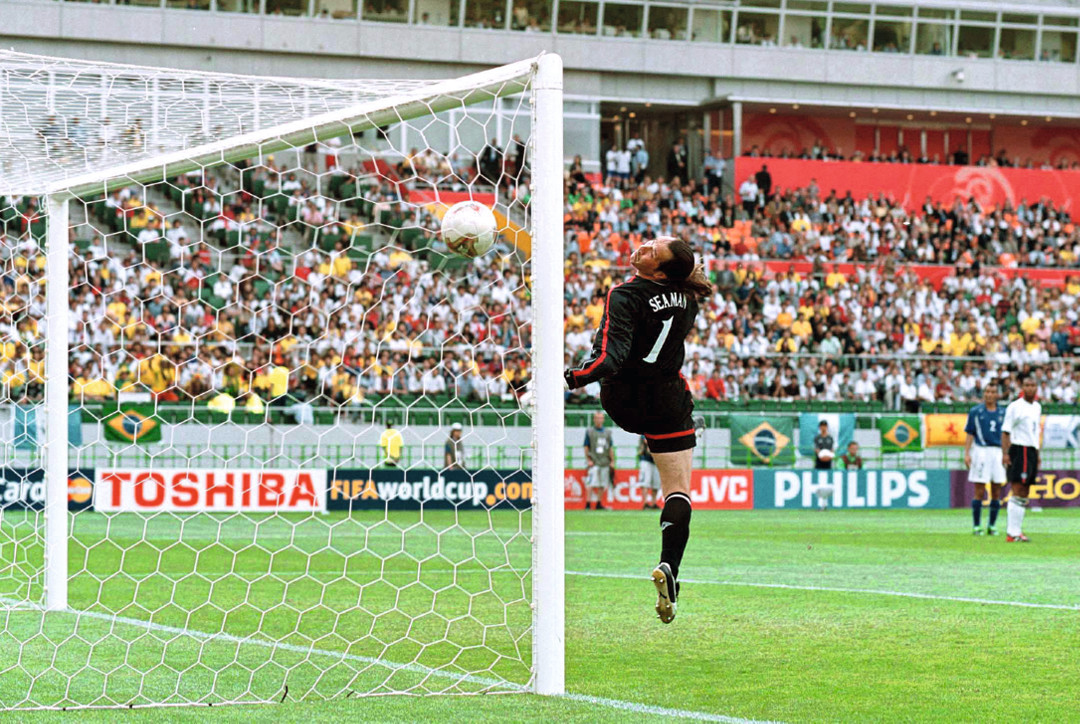
What did Big Phil Scolari say to you when you got sent off against England at the
2002 World Cup? Did you worry you might not get back into the team for the final, or that Brazil might not get there without you?
Bradley Green, Kingston-upon-Thames
He just gave me support, saying it was good to learn. He’s known me since I was a kid at Gremio. He is like a father to me. We can’t talk as much as we like now because of his work, but the love we have for each other is the same. About losing my place, I was never too worried. I just hoped my replacement [Edilson] didn’t score three goals against Turkey in the semi-final! People made me focus on the final, so I was as calm as I needed to be. We were very confident after beating England, we wouldn’t let it slip and I knew my place in the team was secure.
The Nike advert where you juggled the ball, banged it back off the crossbar, did some keepy-uppies and hit the bar a couple more times – did you really do that or was there some clever editing involved?
Daniel Tacon, via Facebook
Of course I did that! I do it every weekend on my pitch at home!
What was the party like after winning the 2002 World Cup? In the past, Roberto Carlos and Ronaldo have both said it was a bit raucous...
Tom Field, Bangor
It took me so long to sleep! We partied in the plane, in Brasilia, in Rio and in our home towns again. I went back home with Ronaldo’s father after I arrived in Rio. We had a lot of ‘orange juice’ on that trip! If I won the World Cup again, I’d party twice as much. It only sinks in that you are a world champion after a few months. It is once in a lifetime for most of us. Roberto parties hard as well, but he is always like that.
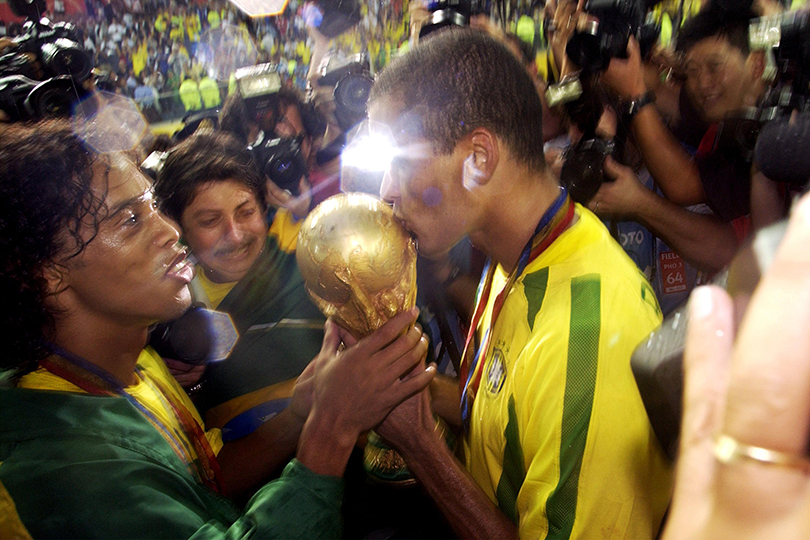
Could you really have joined Manchester United in 2003? Was that the closest
you came to playing in England? What about the rumours linking you with Blackburn Rovers in 2011?
‘Gaffer’, via email
It almost happened with United. It was a matter of 48 hours, but Sandro Rosell had told me way before I got the offer: “If I become Barça president, will you come?” I said yes. It was only a matter of details with United when Rosell called to say he was going to win the elections there. And I had promised to him that I’d play for Barça… It was a quick negotiation.
I told the English I had chosen Barça. It was the right choice. Brazilians have always loved Barça. We have a history there. Off the pitch it is like nowhere else in Europe, so we are always happy playing there. I miss Barcelona a lot. I had five fantastic seasons there, at a club that likes strikers and talented players. About Blackburn: we talked to them, but I wanted to come back home to Brazil.
Copa America 1999; World Cup 2002; Confederations Cup 2005
Was making Ricardo Carvalho dance for your strike against Chelsea in the 2004/05 Champions League – when you threw a dummy before toe-poking it in – the best goal you ever scored? If not, what was?
Nathan Morton, via Twitter
That was a special goal, but there are many others. Some goals are not about the skills; they are about the moment you’re living. I had important goals in youth teams. If those weren’t scored, maybe I wouldn’t have had such an early opportunity to play for Brazil. Thanks to a goal I scored against Venezuela I became a promising player. Scoring for PSG against Marseille wrote me into the history of a European club. At Barça I scored on my debut, in a match that kicked off at midnight...
Not many Barcelona players get an ovation from Real Madrid fans at the Bernabeu, as they did when you scored in 2005. Is that still an immense source of pride for you? What are your memories of that game?
Michael Lowdon, via Facebook
Yes, I am very proud. When it happened, I barely noticed what was happening. I just scored and celebrated. As far as I know, only Maradona got that too in Madrid. I was twice as happy to know my hero in football was the last to have that honour at the Bernabeu. I’ve talked to Maradona about that moment and shared notes. It’s a great memory.
How does it feel to destroy an opponent, then have a laugh and a joke with that same player as soon as the game is over? I’ve never seen anyone else do that.
Ronaldo, FourFourTwo guest editor and former Brazil team-mate
I always respected my rivals, Ronnie, because I know that some day we could be playing together. It was funny with a French guy I faced at Milan – he shook my hand a minute after I nutmegged him. That was different!
What are your memories of the 2006 Champions League Final against Arsenal? Did you feel Barcelona could win it even when you were 1-0 down with 15 minutes to go? How important was Henrik Larsson?
Andrew Taylor, Kingston-upon-Hull It was phenomenal in every way. Larsson brought a lot of experience. He was our
12th player for a long time: the man that came off the bench to make a difference.
We were confident from the start and we knew it would take patience to win.
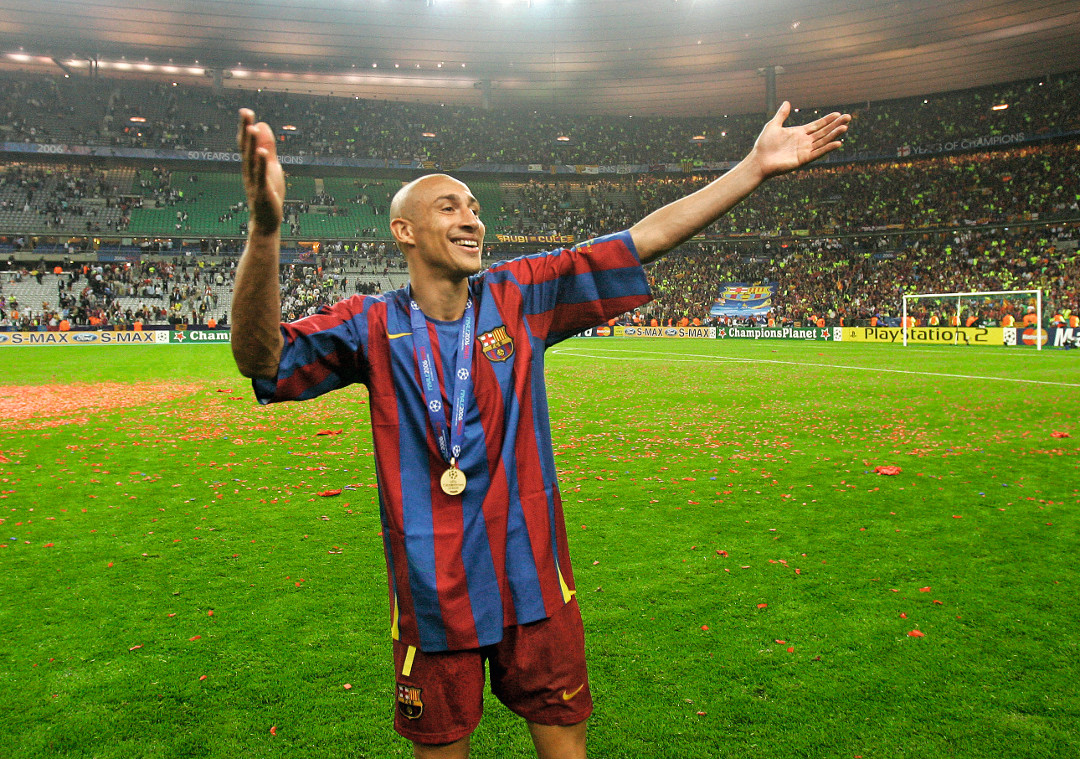
How tough a decision was it to leave Barcelona? Is there any truth in the story that they felt you were a bad influence on a young Lionel Messi?
Shaun Robertson, via Facebook
It was easy – it was time to go. I wanted to follow in the footsteps of [Frank] Rijkaard, who was my coach and said great things about Milan. I had other options, but I wanted to play for Milan. As for that stuff about Messi, it’s not true; you shouldn’t always believe what you read. I always tried to be a good influence on him and actually try to do for him what Ronaldo did for me. I felt embraced by Ronaldo and I wanted Leo to have the same. Messi was always very shy, but always a fantastic player. We lived on the same street, so I had a great relationship with him and his family. Even then I knew he was a better player than me.
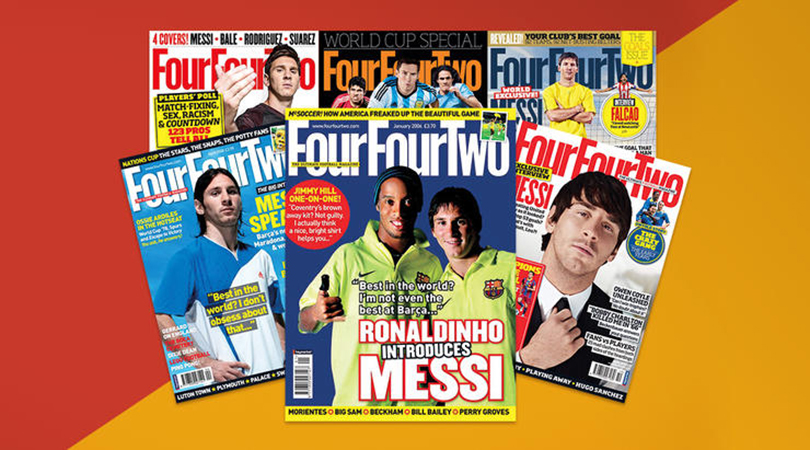
Who’s the best player you’ve played against?
Antoine, via email
It has to be [Paolo] Maldini. Too many skills. It's impossible not to be amazed by how he made it all look effortless, especially when you get to play with him.
Is the flip-flap/elastico your favourite piece of skill? When did you perfect it? Who’s more skilful: you or Ronaldo?
Pete Rogers, via email
That’s probably my favourite skill. It is something that comes with indoor football, but I adapted it to the pitch. My flip-flap is easier for me when I stretch my legs a little more. Rivelino [credited for inventing the move] had shorter legs, but still had amazing skills. I am pretty confident about my skills – they were perfected as time went by. I always liked to play with the ball. I have many difficulties with other things, but I am always at ease with a ball. Ronaldo is my hero. He was better than me. And he is the editor, too, so I can’t say anything he won’t like!
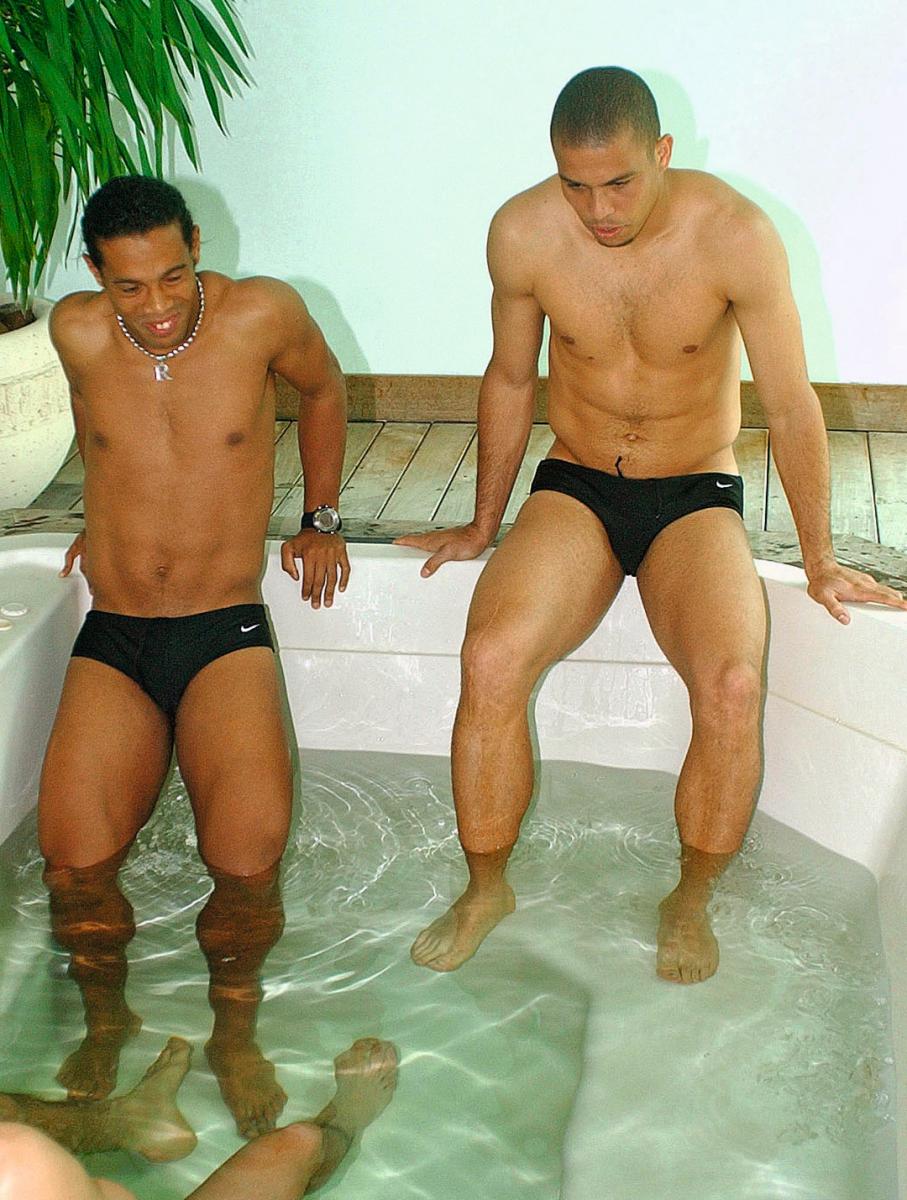
You were at Milan when they started to falter on the European stage. What was
the reason for that? Was it just a case of the best players getting old?
Petey, Belfast
It's just a change in the generations at the club. They will soon be on top again. They have a fantastic infrastructure for players: there isn’t a single player who wouldn’t like to play there.
Who was the best manager you ever played under? Who got the best out of you?
Ilsa Manzer, via Twitter
Rijkaard, no doubt. He's one of the best in the world and he deserves to be with a top team. He will soon be coaching a national team, I think, fighting for a World Cup title. He always got the best out of me because I knew he knew what I needed. His experience on the pitch counts for every player he coaches.
Campeonato Gaucho 1999; Copa do Brazil 2001; La Liga 2005, 2006; Champions League 2006; Serie A 2011; Campeonato Carioca 2011; Campeonato Mineiro 2013; Copa Libertadores 2013
What was your reaction when you found out somebody wanted to name a new species of bee after you? Did you think hard about what you wanted it to be called? Why the number 49 instead of your name?!
Terry Franks, Middlesbrough
I was shocked! I found it curious, but I didn’t buy the idea that they wanted to name the bee after me just because they think I am nice. It may have been more for publicity. So I got the idea to name the bees after the number 49 as a tribute to my mother, who was born in the year 1949. She has had some difficult times with her health recently, but is now improving.
You left Milan when you’d just topped the assists league in Serie A. Why did you go? Did you want more playing time?
Josh Smith, Leamington Spa
I wanted to come back to Brazil to live in Rio. I didn’t want to come back just to retire – I wanted to make an impact. And Flamengo had a good plan for me. That was key for me. That’s why I didn’t go straight to Gremio, my boyhood team. That time hasn’t come yet.
Did you ever feel like not winning the Copa Libertadores was a hole in your CV? How important was it to you to win it with Atletico Mineiro last year, and was it extra special because you had to make dramatic comebacks in the quarters, semi and final?
Gill Underwood, Colchester
No doubt. Winning at Atletico was one of the greatest things of my career. They hadn’t won any great trophies since 1971 and never lifted the Libertadores before, so you must see how these passionate fans deserve this. We had a thrilling competition, which adds to the excitement of winning, of course. Now I need to win the Brazilian championship, which I have always wanted to. Then my CV will be complete.
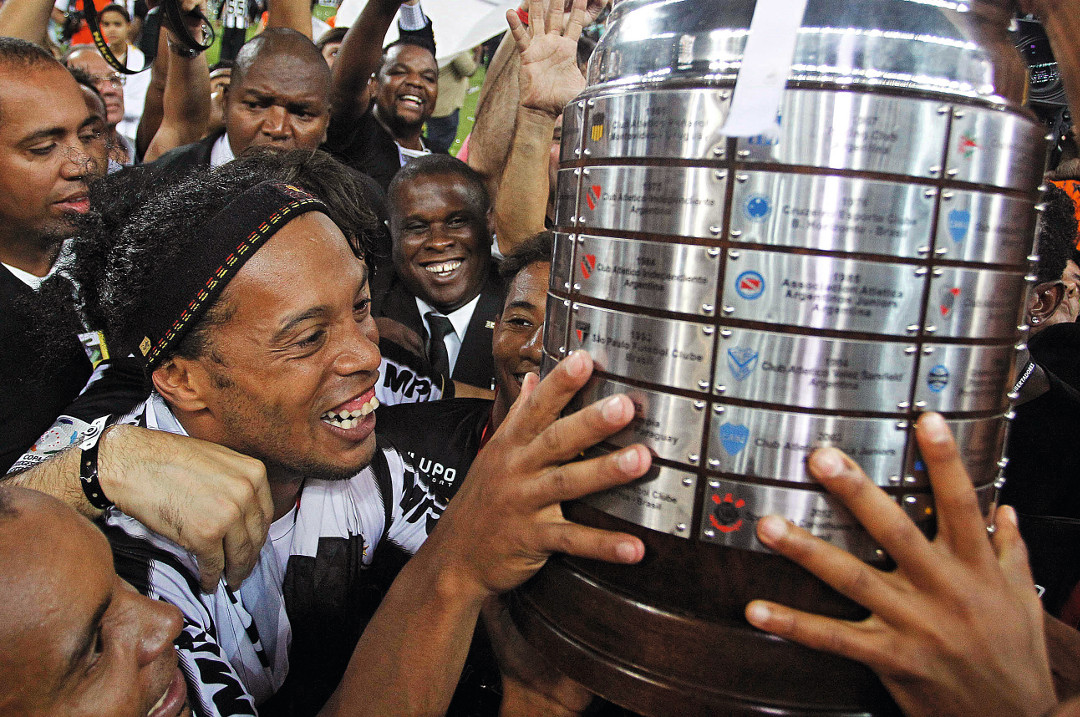
Imagine, Ronnie: your house is on fire and you only have time to save one winner’s medal. Is it the 2002 World Cup, the 2006 Champions League or
the 2013 Copa Libertadores?
Ant Cole, via email
What a terrible idea! Well, I think they are all important when you win them. Of course the World Cup means more, but it basically depends on which is closer to the door or window so I can escape unharmed. If they’re all close I’ll try to grab them all.
Apart from current club Atletico Mineiro, which fans do you remember the most fondly from your career?
Felipe Fernandes, via Twitter
I always played for teams with hardcore fans. Gremio was special because it was the first one: I played there from age seven and I could still go and see them on the stands as a supporter. Brazilians are all nuts about football – the pressure is enormous. In France they are wild, too. PSG fans are really loud. At Barcelona they were so tense because it had been a long time since they last lifted the Champions League. And at Milan the show off the pitch and in the stands is just as great as it is on it. I can’t possibly choose.
Would Neymar have got into your 2002 World Cup-winning side?
Barry Moore, via Facebook
It’s difficult to say. Great players always have room in the team, and Neymar is one of them. But there were more great players in 2002. I think Scolari would have to answer that one.
Did you think you had a chance of making it into the World Cup squad this year?
Was it more disappointing to miss out on playing in a World Cup at home or in 2010?
Martin Galmer, Dallas, USA
Not this time. In 2010 I thought I had a chance. I was living a great moment then. But Dunga didn’t want me there. This year it could have happened; I am more experienced now. Too bad it never happened...
Then read...
QUIZ! How many of the 50 Brazilian goalscorers in Premier League history can you name?
STORY How my mental illness helped me rediscover what it is to love football
While you're here, why not take advantage of our brilliant new subscribers' offer? Get 5 copies of the world's greatest football magazine for just £5 – the game's greatest stories and finest journalism direct to your door for less than the cost of a London pint. Cheers!
